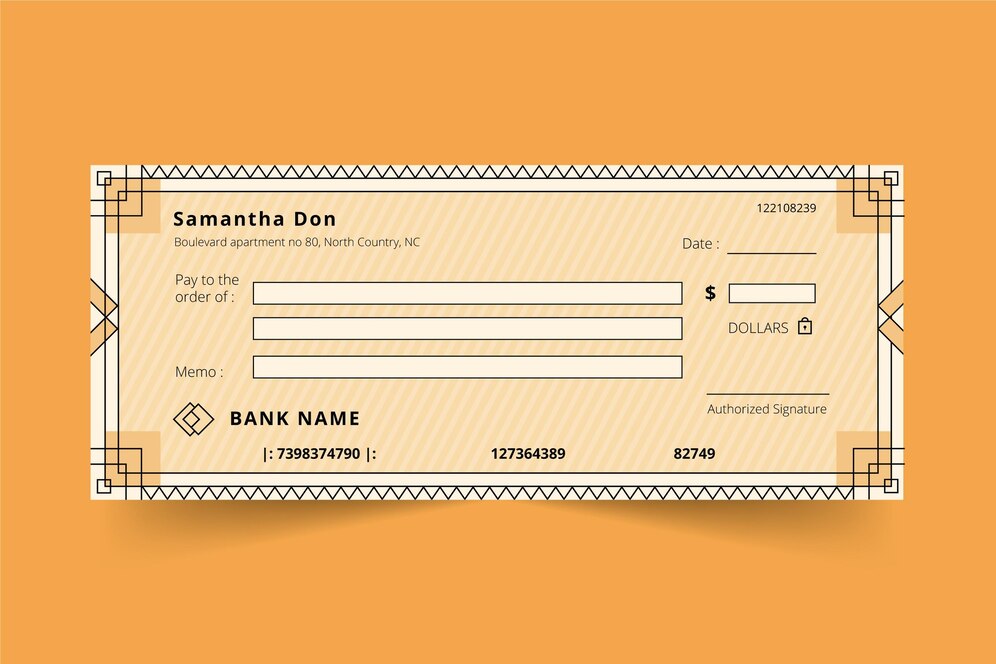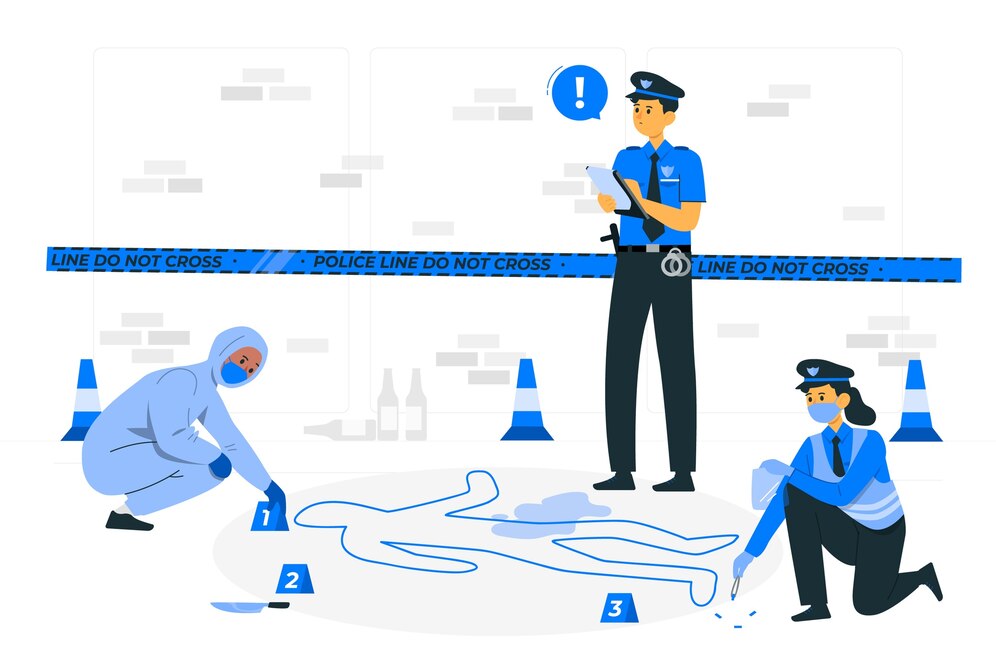Name: Ras**i V****an
Experience: 12+ Years
Specialization: Arbitration, NIA, Recovery suits, Property disputes, Contract/ agreement drafting.
Education: M.A. LL.B. from Delhi University
Language: English & Hindi
Contact: +9196*****07
Name: A***YA SH***A
Experience: 3+ Years
Specialization: Arbitration, NIA, Recovery suits, Family law cases, Matrimonial disputes, Criminal litigation.
Education: B.B.A. LL.B. (Hons.) from Symbiosis Law School, Noida
Language: English & Hindi
Contact: +9188******29
Name: MA*****DRA
Experience: 9+ Years
Specialization: Criminal Law, Banking Law, Arbitration, Constitution Law, Environment Law.
Education: B.B.A. LL.B. (Hons.) from Symbiosis Law School, Noida
Language: English, Punjabi & Hindi
Contact: +9195******06
Name: UP***NA Pa**JA
Experience: 20+ Years
Specialization: Family/ Matrimonial Disputes, Commercial Disputes, Property Disputes, Succession/ inheritance, Arbitration.
Education: M.Com. LL.B. from Faculty of Law, Delhi University
Language: English, Punjabi & Hindi
Contact: +9198******45
Name: Hat****der S**gh
Experience: 15+ Years
Specialization: Family – Matrimonial disputes, Property disputes, real estate law, and landlord-tenant conflicts, civil litigation.
Education: LL.B. from Punjab University
Language: English, Punjabi & Hindi
Contact: +9194*****34
Name: Dh**V Ma**an
Experience: 10+ Years
Specialization: Civil Litigation, Arbitration, NIA, Recovery suits, Consumer Disputes. Contract/ Agreement Drafting.
Education: B.B.A. LL.B. (Hons.) from Symbiosis Law School, Noida
Language: English & Hindi
Contact: +9198******13
Name: Sh***NG
Experience: 9+ Years
Specialization: Criminal Law, Arbitration, DRT matters, NCLT maters, IBC disputes, Commercial disputes.
Education: B.A. LL.B. (Hons.), LL.M.
Language: English & Hindi
Contact: +9173******80
Name: Ho**y J**n
Experience: 15+ Years
Specialization: Criminal Law, Economic Offences, DRT matters, SARFAESI Act, Family/ Matrimonial Disputes.
Education: B.A. LL.B. (Hons.) LLM from Faculty of Law, Delhi University
Language: English & Hindi
Contact: +9173******80
Name: Ash**h B**ra
Experience: 15+ Years
Specialization: Criminal Law, Economic Offences, SARFAESI Act, PMLA, Drafting all kinds of Agreements/ Contracts.
Education: B.A. LL.B. (Hons.) LLM from Faculty of Law, Delhi University, Diploma in Merger & Acquisition, Diploma in Cyber Laws.
Language: English, Punjabi & Hindi
Contact: +9198*****04
Name: Ka**l Ban**l
Experience: 20+ Years
Specialization: Civil Litigation, Property Disputes, Matrimonial Disputes. Contract/ Agreement Drafting.
Education: B.B.A. LL.B. (Hons.) LL.M. from Symbiosis Law School, Noida
Language: English & Hindi
Contact: +9198******43
Name: Sa**ay Sa**n
Experience: 35+ Years
Specialization: Civil Litigation, all kinds of Family/ Matrimonial Disputes. Practicing in Supreme Court for Past 35 years.
Education: B.A. LL.B.
Language: English & Hindi
Contact: +9198******08
Name: Raj**v Ta***r
Experience: 35+ Years
Specialization: Expert in banking laws, DRT matters, NCLT & NCLAT matters, SARFAESI Act. Practicing in Supreme Court for Past 35 years.
Education: B.A. LL.B.
Language: English & Hindi
Contact: +9198******38
Name: A**t Kh***a
Experience: 20+ Years
Specialization: Criminal Law, CBI matters, Family Law, POCSO Act, PMLA.
Education: B.A. LL.B.
Language: English, Punjabi & Hindi
Contact: +9198*****56
Name: Ka***a K***al
Experience: 6+ Years
Specialization: Civil Litigation, Property Disputes, Matrimonial Disputes. Contract/ Agreement Drafting.
Education: B.B.A. LL.B. (Hons.)
Language: English & Hindi
Contact: +9170******15
Name: Ni**n
Experience: 15+ Years
Specialization: Criminal Litigation, Cheque bounce, NIA.
Education: B.A. LL.B.
Language: English & Hindi
Contact: +9199******11
Name: Raj*****n
Experience: 20+ Years
Specialization: Civil Litigation, Corporate/ Company Laws. NCLT & NCLAT matters.
Education: B.A. LL.B.
Language: English & Hindi
Contact: +9199******07
Name: S*h**a *J*i***l
Experience: 15+ years
Specialization: Corporate Law, Intellectual Property, Commercial Disputes, Taxation, Arbitration, Civil Litigation
Education: LL.B., LL.M, PhD
Language: English, Hindi
Contact: 98**4**9
Name: A*h*** S***h
Experience: 30+ years
Specialization: Matrimonial Disputes, Divorce, Alimony, Domestic Violence, Adoption Law
Education: B.A. LL.B., LL.M
Language: English, Hindi
Contact: 82***4***6
Name: R**h* S*a**a
Experience: 10+ years
Specialization: Criminal Law, Family Law, Child Custody, Property Disputes, Divorce Cases
Education: B.A. LL.B., LL.M from Mumbai University
Language: English, Marathi
Contact: 98**0***40
Name: N*n***i D*y
Experience: 25+ years
Specialization: Labour Law, Employment Law, Commercial Contracts, Wages Dispute, Industrial Relations
Education: B.A Hons, LL.B., LL.M.
Language: English, Hindi, Bengali
Contact: 9*******1
Name: K***a S****a
Experience: 35+ years
Specialization: Real Estate Law, Property Disputes, Land Acquisition, Civil Law, Family Law
Education: LL.B. from Pune University
Language: English, Hindi
Contact: 92*******2
Name: A***l R**a
Experience: 16+ years
Specialization: Taxation Law, GST, Customs, International Taxation, Litigation
Education: B.A., M.A., & LL.B. from University of Calcutta
Language: English, Hindi
Contact: 94*******2
Name: A***y S***gh
Experience: 30+ years
Specialization: Commercial Disputes, Arbitration, Corporate Law, Civil Law, Property Law
Education: B.A. LL.B., LL.M., PhD
Language: English, Hindi
Contact: 98******84
Name: S*****p Sh***a
Experience: 18+ years
Specialization: Criminal Law, Prevention of Corruption Act, Bail Applications, Cyber Crimes
Education: LL.B. from Chandigarh University
Language: English
Contact: 87****7**0
Name: Ha*****h P*****l
Experience: 9+ years
Specialization: Matrimonial Disputes, Divorce, Alimony, Domestic Violence, Adoption Law
Education: B.A., M.A., LL.B., LL.M.
Language: English, Hindi
Contact: 82****3**6
Name: Pr*****a S***h
Experience: 9+ years
Specialization: Matrimonial Disputes, Divorce, Alimony, Domestic Violence, Adoption Law
Education: B.A. LL.B., LL.M.
Language: English, Hindi
Contact: 98*****6
Name: S. S***q a**
Experience: 30+ years
Specialization: Criminal, I T Act, Family matters
Education: M.A. & L.L.B
Language: Hindi
Contact: 9**2****11
Name: J*e J.U***ath
Experience: 23+ years
Specialization: Civil, Family, Insurance, Writs, and other High Court matters
Education: L.L.B
Language: Malayalam, English, Hindi, Kannada
Contact: 8**19****9
Name: Thul***as N
Experience: 6+ years
Specialization: Civil, DRT
Education: B.Com, L.L.B
Language: Malayalam, English
Contact: 94***68***2
Name: Suv**** Gh**h D****dar
Experience: 5+ years
Specialization: Civil, Criminal, Consumer, Writ
Education: B.A.LL.B, LL.M
Language: English, Hindi, Bengali
Contact: 98****3**4
Name: Riju**n An**m Ha***ka
Experience: 6+ years
Specialization: Matrimonial Cases, Divorce, Domestic Violence (DV), Maintenance, Title Suits, Eviction, Bail Matters, Money Execution, NI Cases, Complaint Cases, Drafting
Education: B.B.A, LL.B
Language: Hindi, Assamese, English
Contact: 9*******57
Name: Abhi***k Suh***a
Experience: 5+ years
Specialization: Criminal
Education: LL.B, LL.M
Language: English
Contact: 90*******2, 9*******36
Name: P***aj Si***
Experience: 4+ years
Specialization: Criminal/Civil matters
Education: BA, LL.B
Language: Hindi
Contact: 9711527363
Name: R***t Sh****
Experience: 5+ years
Specialization: Criminal cases, Matrimonial, Divorce, etc.
Education: B.Com (Hons) and LL.B
Language: English, Hindi & Punjabi
Contact: 81*******8
Name: M****h K**ar Sh**ma
Experience: 4+ years
Specialization: Criminal, NI Act, Family matters
Education: Ballb, PGDCJ
Language: English, Hindi
Contact: 8700635251
Name: Adv. A***r Si***h
Experience: 7+ years
Specialization: Civil, Criminal, and Taxation
Education: MBA, LL.B
Language: English, Hindi, Punjabi
Contact: 97***28***
Name: D***rm***** Kum**
Experience: 3+ years
Specialization: Civil, Criminal, Consumer, Arbitration, NDPS, etc.
Education: B.Sc (IT), LL.B
Language: English
Contact: 8287246586
Name: D****h K***r
Experience: 5+ years
Specialization: Civil matter
Education: B.A.LL.B
Language: Hindi & English
Contact: 9*******0
Name: A***r Sh**m
Experience: 5+ years
Specialization: Civil, Criminal, Consumer, Agreement, Registry
Education: LL.B
Language: Hindi & English
Contact: 7********7
Name: S*****h M***
Experience: 8+ years
Specialization: Civil, Criminal, Matrimonial
Education: B.Sc Diploma, LL.B, MBA, M.A.
Language: English & Hindi
Contact: 9********7
Name: R******a S****
Experience: 7+ years
Specialization: Criminal, Matrimonial, Cheque Bounce, Family matters, All types of litigation
Education: B.A.L.L.B
Language: Hindi & English
Contact: 7********3
Name: R***t J****
Experience: 4+ years
Specialization: RERA, Criminal, Matrimonial, Cheque Bounce, Property matters
Education: B.Com, LL.B
Language: Hindi & English
Contact: 7********1
Name: P******h J***sh S**i
Experience: 8+ years
Specialization: Civil, N.I. Act, SARFAESI Act, Consumer matters
Education: B.A.LL.B. (Hons.), LL.M.
Language: Hindi, English & Gujarati
Contact: 9********0
Name: A****d S**gh J R**
Experience: 12+ years
Specialization: Criminal & Property matters
Education: BA.LL.B.
Language: Hindi, English & Gujarati
Contact: 9********7
Name: Adv. S*****t K**e
Experience: 5+ years
Specialization: Civil, Criminal, Writ, Matrimonial, Cheque Bounce cases, etc.
Education: BE, M.Tech, LL.B, LL.M
Language: Marathi, Hindi & English
Contact: 9********7
Name: Adv. D***h*n D***p M**e
Experience: 7+ years
Specialization: Cheque Bounce, Property, Matrimonial cases
Education: BSL LL.B
Language: English, Hindi & Marathi
Contact: 8********9
Name: S***k**ta C S*****n*****r
Experience: 4+ years
Specialization: Civil & Criminal matters
Education: Bcom. LLB (SPL)
Language: Kannada & English
Contact: 9****2***7
Name: B L N****h
Experience: 28+ years
Specialization: Civil & Criminal matters
Education: BA, LL.B, LL.M. in Commercial law
Language: English, Kannada, Telugu & Marathi
Contact: 98***7***9
Name: M*****y N******a R***y
Experience: 5+ years
Specialization: Civil & Consumer Matters
Education: B.COM, LL.B
Language: English, Telugu
Contact: 9***54***4
Name: B***ha H******a
Experience: 6+ years
Specialization: Civil and Criminal
Education: BA., MA., LL.B, LL.M, PhD
Language: English, Hindi, Telugu
Contact: 703**4***5
Name: G S***a K**un
Experience: 6+ years
Specialization: Civil, Criminal, Money Recovery Suits, NI Act, Matrimonial Matters
Education: B.Sc, L.L.M
Language: Telugu, English, & Hindi
Contact: 9***2****9
Name: Ra**ch**dra R*o K
Experience: 34+ years
Specialization: Civil, Matrimonial, Consumer, Commercial, Contracts, Drafting, Pleading of different agreements, plaints, statements, counters, petitions, etc.
Education: M.Sc., LL.B, P.G.Dip.I.R.P.M
Language: Telugu, English & Hindi
Contact: [Contact]
Name: B. N*ga K**ar
Experience: 15+ years
Specialization: Civil Cases, Criminal Cases, Revenue Cases, Corporate, Accident Claims, Matrimonial matters
Education: M.A. LL.B
Language: Telugu & English
Contact: 90****2**2, 9**0***585
Name: T*ul*s*as N R**
Experience: 10+ years
Specialization: Civil, DRT, Criminal & Property matters
Education: B.Com, LLB, LLM
Language: Malayalam, English & Hindi
Contact: 94***68***2
Name: O* P*****h
Experience: 4+ years
Specialization: Criminal, Civil & Matrimonial matters
Education: B.Sc (Hons), M.Sc., LL. B
Language: Hindi & English
Contact: 9****2***2
Name: Sid***th B**la
Experience: 7+ years
Specialization: Cyber Crime, Criminal, Civil, Matrimonial Dispute, IPR Registration, Agreement, Contract
Education: Bcom. LL.B
Language: Hindi & English
Contact: 7***1***51
Name: R*****h K**ar So***ki
Experience: 21+ years
Specialization: Arbitration, Cheque Bounce
Education: M.com, PGDBA, LLB
Language: Hindi & English
Contact: 9***62***3





